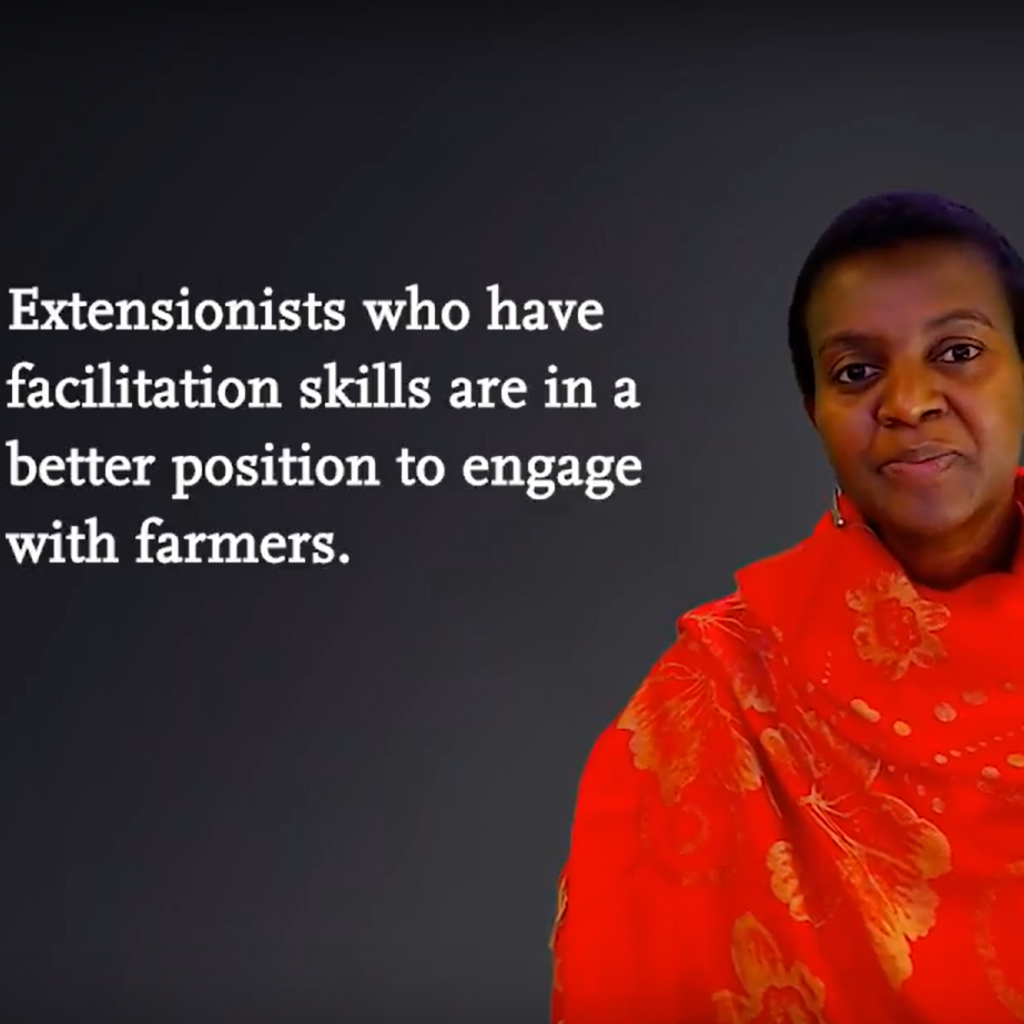New Extensionist Learning Kit (NELK)
What do we see on the project photo?
This is a learning video from Hlami Ngwenya, an expert facilitator and one of the founders, on the NELK online platform where twenty different courses are freely available for extension workers. The modules are displayed and divided into three categories: basic package, thematic modules, and technical modules. They are designed for self-directed, face-to-face, or blended learning.
How would you explain to a child what the project is doing?
This project helps people working to support farmers in learning new skills and improving ways to perform their activities. They can access the website and learn by themselves, at home, or together with other colleagues do it as a guided course.
What is the project’s main objective?
The NELK supports capacity development for extension workers in a rapidly-changing rural context. It prepares them for a larger role within agricultural innovation systems (AIS) and supports the development of new capacities at different levels to play this role.
Why is the project important?
The NELK provides a holistic view of agricultural extension and rural advisory services (RAS). Given the rapidly changing context of rural transformation, it provides extension workers with free resources to continuously update their skills and better serve farming families.
What has been the most positive moment during the project?
The NELK has since been mainstreamed into undergraduate, postgraduate, and MSc programmes at Universities in India and South Africa, and has been used by Universities in Egypt, Ethiopia, Malawi, Benin, Zambia, and the West Indies, for instance.
What have been the biggest challenges encountered in the project?
Needs and skills differ between regions, and even inside countries. What is considered a basic module in certain contexts, might be too advanced in others. Understanding how to customize the NELK modules to different contexts has been a growing need to better serve local realities.
Which is the most important lesson learnt from the project?
The NELK is developed as a free, creative commons resource. This is essential in making it relevant for the various contexts. Giving users the possibility to adapt and rewrite some of its context to better fit their needs is essential in keeping the NELK modules as a valuable resource.
About the project
Title:
New Extensionist Learning Kit (NELK)
Contact:
Ingrid Oliveira, Communications Coordinator
Duration:
Phase I: 2012-2018; Phase II: Ongoing and open-ended
Funding institutions:
Swiss Agency for Development and Cooperation (SDC) and Deutsche Gesellschaft für Internationale Zusammenarbeit (GIZ)
Implementing institution:
Global Forum for Rural Advisory Services (GFRAS)
Links to further information:
http://nelk.g-fras.org/en/

